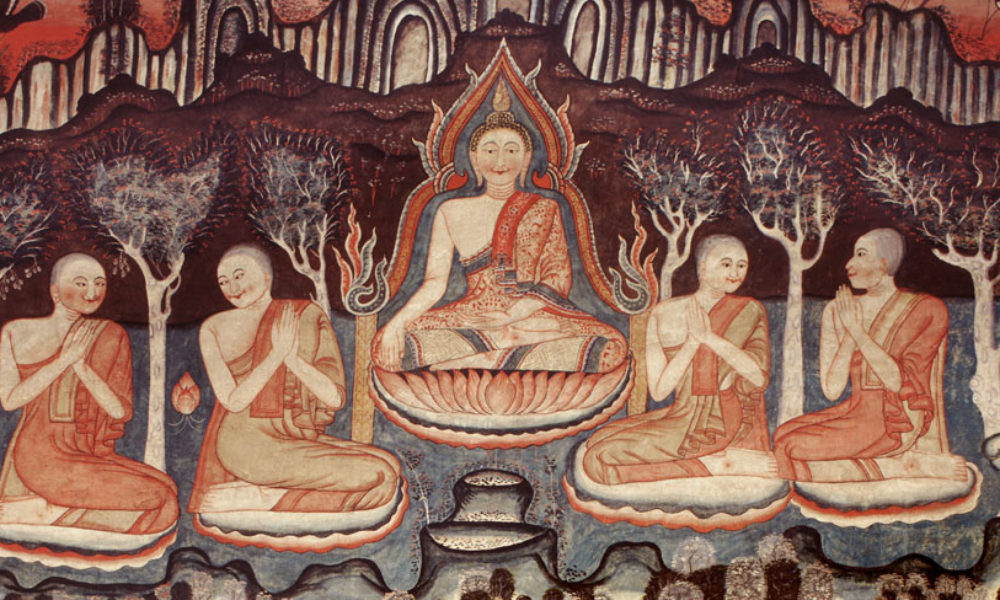Anger is a powerful emotion that affects individuals in various aspects of life, from personal relationships to professional interactions. In Buddhism, anger is considered one of the “three poisons” alongside ignorance and attachment, hindering one’s journey towards enlightenment. However, Buddhism offers profound insights and practical techniques for understanding and managing anger in constructive ways.
The Nature of Anger in Buddhism
In Buddhism, anger is seen as a destructive force that arises from attachment, aversion, and ignorance. It clouds the mind, distorting perceptions and leading to harmful actions. Understanding the root causes of anger is essential for cultivating inner peace and harmonious relationships.
The Consequences of Anger
Buddhism teaches that anger not only harms others but also creates suffering for oneself. When we react with anger, we perpetuate a cycle of negativity that intensifies personal dissatisfaction and alienates us from others. Moreover, unresolved anger can lead to physical and mental health problems, contributing to a downward spiral of distress.
Techniques for Dealing with Anger
- Mindfulness Practice: Mindfulness is a cornerstone of Buddhist teachings and serves as a powerful tool for managing anger. By cultivating present-moment awareness, individuals can observe the arising of anger without being consumed by it. Mindfulness allows space for reflection and choice, empowering individuals to respond to situations with wisdom and compassion rather than reactive anger.
- Compassion Meditation: Metta, or loving-kindness meditation, is a practice that involves cultivating feelings of goodwill towards oneself and others. By extending compassion to oneself and those who provoke anger, individuals can dissolve the barriers of resentment and foster understanding. Compassion meditation promotes empathy and forgiveness, transforming anger into constructive action.
- Understanding Impermanence: Buddhism teaches that all phenomena, including emotions like anger, are impermanent and subject to change. By recognizing the transient nature of anger, individuals can adopt a more detached perspective, allowing the emotion to arise and pass without clinging to it. This understanding of impermanence fosters resilience and equanimity in the face of challenging circumstances.
- Right Speech and Action: Buddhism emphasizes the importance of ethical conduct in managing anger. Practicing right speech and action involves refraining from harsh or hurtful words and actions that may exacerbate conflicts. By cultivating mindfulness and compassion in communication, individuals can promote harmony and understanding in their interactions with others.
Anger is a universal human experience that presents both challenges and opportunities for growth. In Buddhism, anger is viewed as a destructive force rooted in attachment and ignorance, yet it also serves as a catalyst for self-awareness and transformation. By applying mindfulness, compassion, and ethical principles, individuals can cultivate a balanced approach to dealing with anger, fostering inner peace and harmonious relationships in their lives.
Mindfulness does not fight anger or despair. Mindfulness is there in order to recognize. To be mindful of something is to recognize that something is there in the present moment. We do not transform ourselves into a battle field, good fighting evil. We treat our afflictions, our anger, our jealousy with a lot of tenderness. “Breathing in, I know that anger has manifested in me; breathing out, I smile towards my anger.” Mindfulness recognizes anger, is aware of its presence, accepts and allows it to be there. Instead of fighting, we are taking good care of our emotion. If you know how to embrace your anger, something will change.
When anger arises, continue to practice mindful breathing and mindful walking to generate the energy of mindfulness. Continue to embrace tenderly the energy of anger within you.
Practicing mindfulness does not mean that you have to do everything on your own. You can practice with the support of your friends. They can generate enough mindfulness energy to help you take care of your strong emotions.
We can also support others with our mindfulness when they are in difficulty. When our child is drowning in a strong emotion, we can hold his or her hand and say, “My dear one, breathe. Breathe in and out with mommy, with daddy.”So give your anger, your despair, your sorrow a bath of mindfulness every day—that is your practice. If mindfulness is not there, it is very unpleasant to have these seeds come up. But if you know how to generate the energy of mindfulness, it is very healing to invite them up every day and embrace them. And after several days or weeks of bringing them up daily and helping them go back down again, the symptoms of mental illness will begin to disappear.
From “Anger,” by Thich Nhat Hanh




